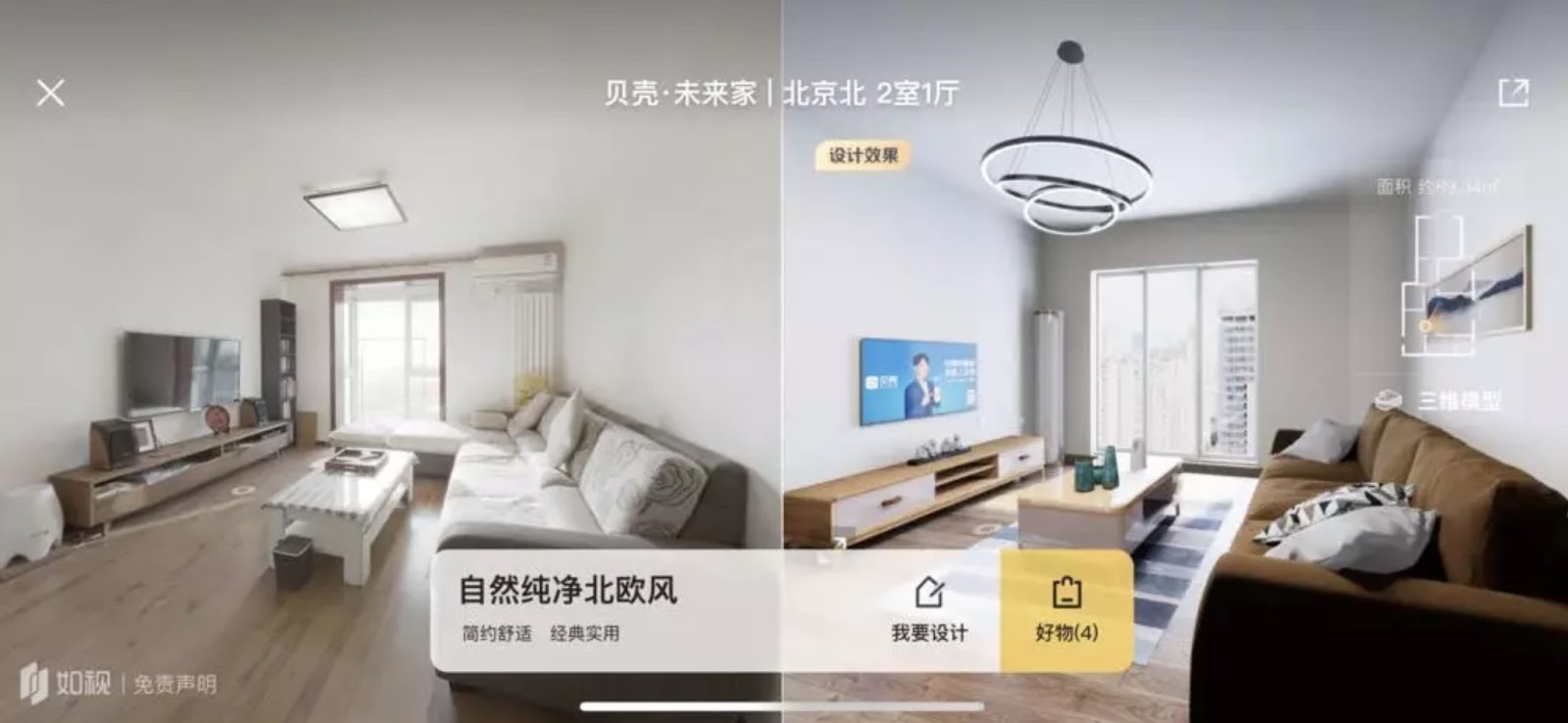Coronavirus: Real estate agents in China embrace virtual house tours
Virtual reality (VR) — long touted as a life-altering technological breakthrough — hasn’t properly taken off in China as a consumer product. Yet the Chinese real estate industry is rapidly expanding its push into VR, as the COVID-19 epidemic has made real-world home tours almost impossible.

Virtual reality (VR) — long touted as a life-altering technological breakthrough — hasn’t properly taken off in China as a consumer product. Yet the Chinese real estate industry is rapidly expanding its push into VR, as the COVID-19 epidemic has made real-world home tours almost impossible.
According to a recent report (in Chinese) from Beike Zhaofang (贝壳找房 bèiké zhǎofáng), an online Chinese real estate brokerage service, VR has become an increasingly critical supplement to the traditional home-buying experience, allowing agents to create virtual real estate tours for clients.
The report says that in February, realtors and buyers initiated an average of nearly 350,000 virtual house viewings per day, about 35 times the previous month’s number. In anticipation of growing demand for such services, on February 18, Beike created an online property sales office specializing in VR technology. Four days later, it held its first virtual open house. Within 10 minutes of opening, it had convinced more than 1,068 clients to make property purchases.
It’s not just tech-savvy online real estate brokers doing VR tours. Per Huxiu (in Chinese), the coronavirus epidemic has prompted a number of property developers to ramp up their VR efforts. Following the Chinese New Year in January, major real estate groups such as Evergrande and R&F closed many sales centers in regions hit hard by the outbreak. They shifted their focus to online sales, inviting buyers to virtual tours of listings and teaching senior employees how to use livestreaming to market properties to consumers and keep them engaged.
The head of Beike Zhaofang’s VR department, Huì Xīnchén 惠新宸, told Huxiu that the company had been testing VR since 2015, but it wasn’t until the outbreak that the platform’s users became engaged with the technology.
“We are surprised by how much growth the coronavirus brought to our business,” Hui said, adding that the platform now offers virtual tours of more than 3.3 million listings in over 120 cities across China.
The COVID-19 pandemic, which so far has killed more than 3,000 people in China, has had sweeping effects on the entertainment, retail, and restaurant industries, among others. Real estate has also been hit hard. Between January 1 and March 4, this year, “about 110” Chinese property companies — mostly small- to medium-sized — have gone bankrupt this year, according to Chinacourt.org (in Chinese), a legal news website run by the State Council.






